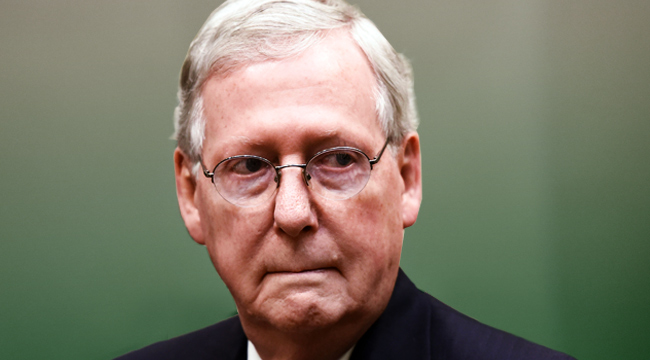
Once again, a government shutdown is looming. The GOP is hoping to pass another continuing resolution on the budget, which will move the deadline to February 16th, to give the government time to hash out several complex issues and pass a long-term budget. Although this bill passed the House on Thursday, Mitch McConnell likely can’t even get a chunk of his own Senators, let alone Senate Democrats, to vote on it. And if the Senate can’t pass any funding resolution, or if Trump decides to veto it, then the government officially shuts down. So why is a government where one party holds both houses of Congress and the White House unable to pay the bills? And what does that mean for you?
How we got here is simple enough. The GOP needs more than a simple majority to pass any sort of meaningful budget bill, and they don’t have it. To get it would require compromising with Democrats on a few key issues:
- The first is the Deferred Action for Childhood Arrivals (DACA) program: Trump ended it in September (although a court resurrected it) while demanding a bipartisan compromise from Congress. So Congress did their job, drafted one, and Trump promptly rejected it, possibly because the bill had concessions for “s***hole countries.”
- The second is the Children’s Health Insurance Program (CHIP): After letting funding for the program, which provides free health insurance to nine million children, lapse in September, the GOP has attempted to get Democrats to pass the bill by tagging a six-year extension to the continuing resolution, hoping that Democrats will simply drop all discussion of DACA until the bill passes. The problem, in part, is that retiring Senator Jeff Flake was publicly promised something on DACA by GOP leaders, and now that he’s not getting it, he’s siding with Democrats.
It’s worth noting here that both DACA and CHIP have been shown to be popular with voters across the political spectrum. Finding bipartisan support, in other words, shouldn’t be this hard.
So, that’s the political end of things. What does it mean for you, personally?
- For the kids on CHIP, and those under DACA, the clock is ticking: CHIP funding varies on a state by state basis, so the funds will run dry on a staggered schedule. Some states will likely run out of funds as you’re reading this, while others may have enough to last until the end of January. For DACA recipients, meanwhile, it really comes down to how lawsuits will play out in the courts, but by March 5th, the problem will become much, much more pressing.
- For others, it’s a question of how long the shutdown lasts: A shutdown that lasts a day or two will mostly be an annoyance for your average man on the street. Despite how it sounds, the money for most programs just doesn’t suddenly evaporate, and most federal programs will have money to keep running ranging from a couple of days to a few weeks. It’s unlikely any shutdown will last that long, fortunately, but if it does, the effects will become a lot more visible much more quickly.
- The immediate shutdowns will be public spaces on and offline: Public parks and monuments, and most government websites, are considered “nonessential” and won’t be funded. So if you’re trying to renew something online or look something up with the federal government, you’re going to be out of luck.
- Essential personnel like police will still be working, but everybody else is forced off the clock: Everything else, from government analysts to zoo employees, will be on unpaid furlough. That may not sound so bad, but stop and consider that federal spending is 20% of America’s gross domestic product.
- The military is still active, but soldiers aren’t getting paid: Soldiers have “delayed” paychecks but are still expected to work through a shutdown. That said, during the last shutdown, in 2013, Congress at least managed to pass a law giving soldiers their checks on time, and that may happen again.
- Quasi-governmental services like the USPS and Amtrak will largely be unaffected, at least at first: The USPS is largely self-sufficient thanks to what you pay for stamps, but services that rely heavily on government subsidies, like Amtrak, may start to suffer if the shutdown extends much beyond a week or two.
- And if you live in D.C., the city will essentially be shut down: Since the budget for Washington D.C. as a city comes from the government, residents of D.C. may not even get trash pickup until this whole thing is resolved. Not helping matters is much of D.C. works for the federal government, and people going without paychecks, even for a week, is going to hurt the city.
By the way, the polticians, during all of this, will keep drawing checks, but their staffers won’t. We’ll be curious to see what they’ll do with those checks, if the shutdown extends beyond a few days.
